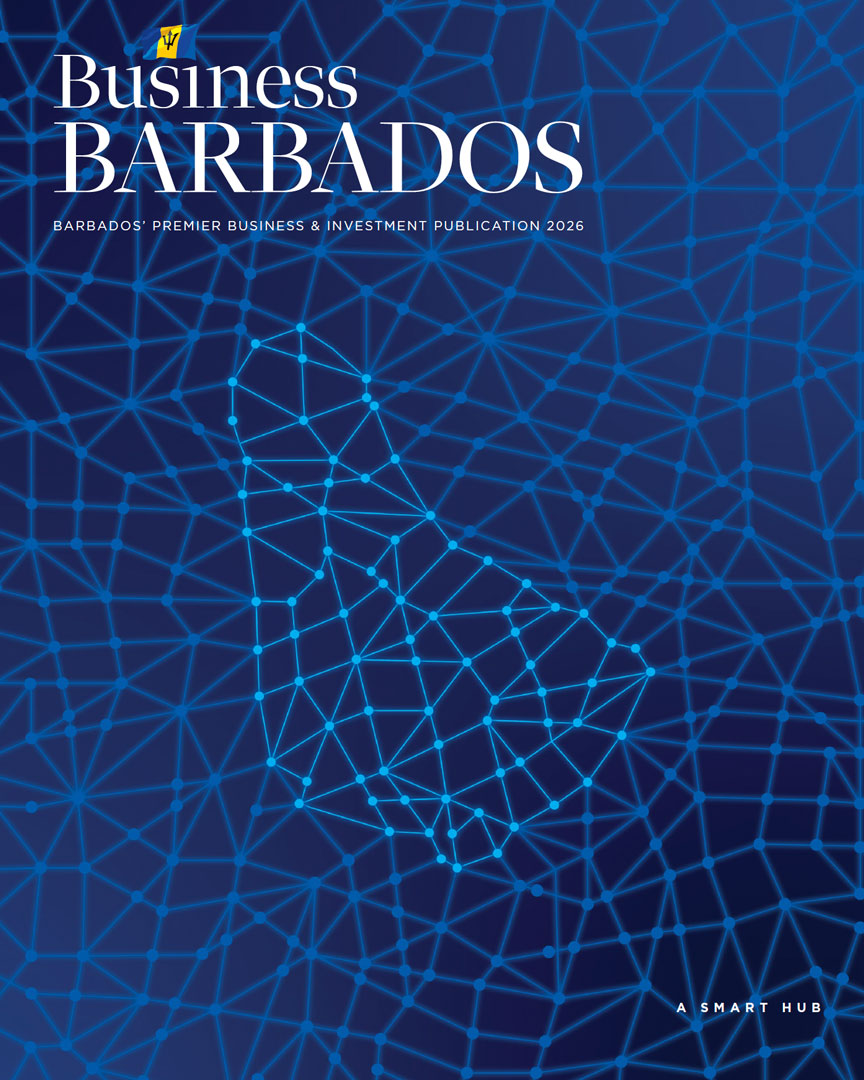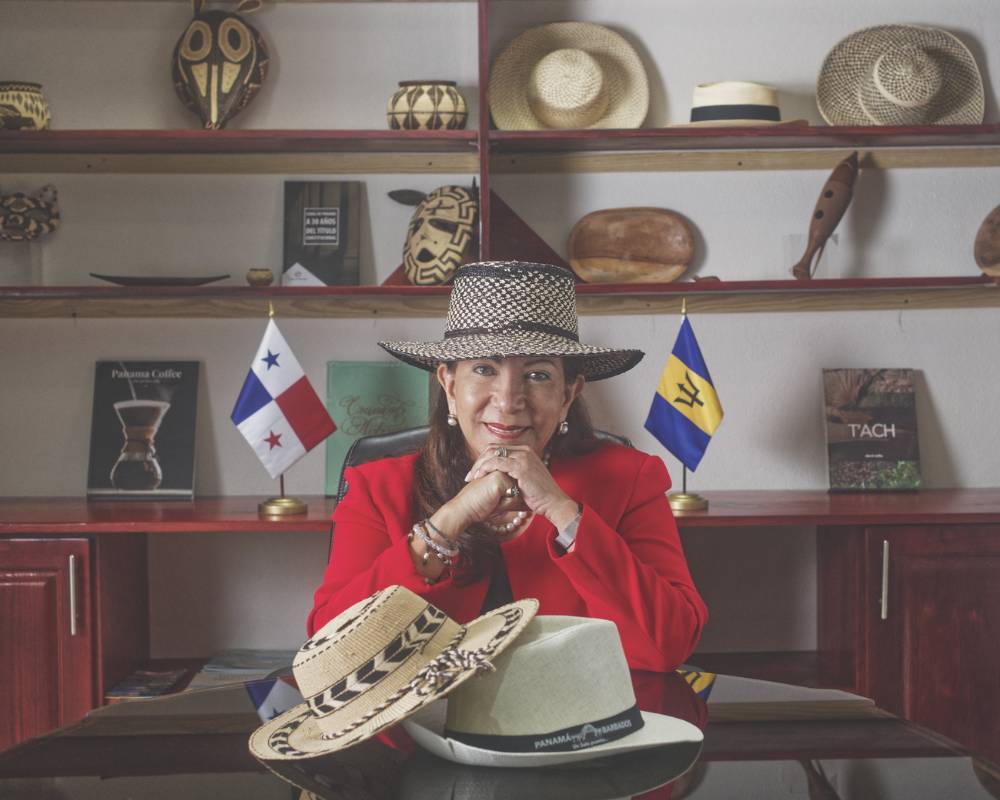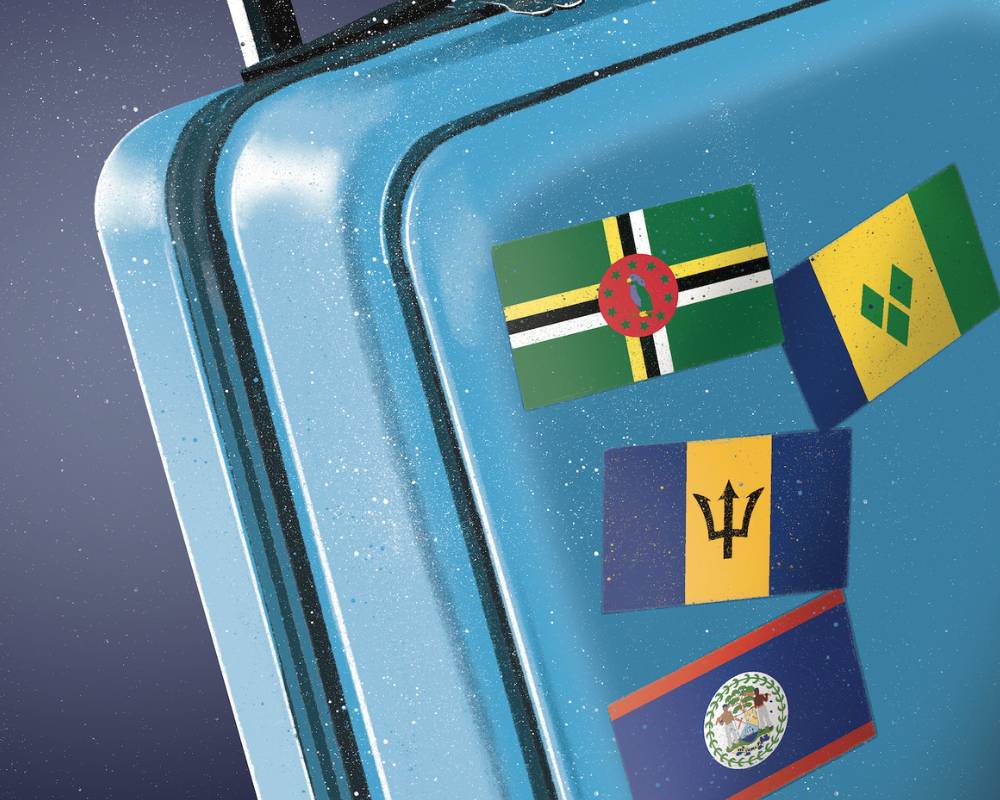
It was Oscar Wilde’s assessment that “Imitation is the sincerest form of flattery”. And as the innovativeness of Barbadians shone through the direst period of the COVID-19 pandemic, the island’s Welcome Stamp visa programme emerged.
So successful has been Barbados’ Welcome Stamp Programme in redefining how people can work, live and enhance their lifestyle, that by mid-2021, at least 20 countries were trying to replicate it. Today, almost 60 nations are offering similar digital nomad programmes.
An initiative targeting the growing segment of digital knowledge workers has proven to be an important source of valuable foreign exchange – the lifeblood of this small open economy. Important also has been the contribution of the Programme as a base for long-term tourism. It has also spurred the island’s second-homes market and boosted the middle and premium-rated rental accommodation.
Launched by Prime Minister Mia Amor Mottley in July 2020, the Programme was given enhanced legal status in 2021 with the passage of the Remote Employment Amendment Act, 2021, which extended the existing legislation governing the Welcome Stamp. In fact, during the pandemic period, which was characterised by severely restricted international travel, this segment of visitors cum-long-term residents became an important source of vital foreign revenue.
By mid-2020, Barbados’ GDP had contracted by almost six per cent, and the significant growth trajectory of 2019, unfortunately, made a deep plunge south.
Even though Barbados is an extremely desirable destination and needed as much revenue as possible, not everyone who applied to live and work here was successful. The country sought to ensure the legitimacy of applicants, their bona fides as digital workers, and their capacity to support their lifestyle while residing on the island.
By the end of 2021, some 3,257 applications were received; of those, 2,163 were approved. As Maggie Gonsalves, the Welcome Stamp Manager with the Barbados Tourism Marketing Inc (BTMI), indicated recently, more than 4,000 people are approved holders of the Welcome Stamp status.
These “welcome stampers”, as they have been affectionately monikered by Barbadians, provided an unfiltered window for the rest of the world to understand how this tiny Caribbean nation arranged its resources, both human and capital, in such a way to orderly and rationally manage the pandemic’s circumstances.
Take for example, Lee Yeaman, who came to Barbados about one year after the special visa Programme was introduced. The United Kingdom based freelance writer, journalist and political outreach correspondent for ImmigrationNews.co.uk easily related her Welcome Stamp experience with authenticity that drew significant following in the UK and around the world as she journalled her encounters.

Though Barbados was impacted by the health and socio-economic crisis spawned by the pandemic, it did not experience the mayhem, protests, and disorder that characterised the situation in some industrialised centres.
Yeaman’s account of finding safe harbour in Barbados with our top tier telecommunications systems, modern infrastructure, wide range of accommodations from luxury villas to mid-budget homes, high level of personal safety and security, strong educational system for Welcome Stampers with children, relative proximity to and easy air access as a leading Caribbean hub, all added to the island’s appeal.
The Briton also marvelled at the spirit of Barbadians who rallied to assist each other during the pandemic and the ash fall that blanketed the country following the volcanic eruption in the neighbouring island of St Vincent.
In one of her accounts carried in Huffpost accompanied by photographs of the iconic Carlisle Bay, she recounted the dramatic shift of working from home, and initial fears of relocating to the island with her young son Leo.
“Wanting to push myself and take advantage of finally being untethered to a specific workplace, I figured, why not try something completely new in a completely new place? When else was I going to get this kind of opportunity?”
Yeaman added: “I found a great community on this beautiful island, and I made friends almost immediately. I’ve had people check in on me and help me with whatever I need. The sense of community here is astounding and even though it’s just Leo and me, I haven’t ever felt lonely.”
This is the kind of testimony that tourism officials of any destination would clamour to receive in such a high-profile publication.
The Barbados economy has significantly recovered from the pandemic-associated slump. Governor of the Central Bank of Barbados, Dr Kevin Greenidge, announced in his October economic review that the third-quarter improved economic performance was buoyed by tourism.
He also outlined the economy’s projected growth of 4.5 per cent for 2023 and by 3.5 and four per cent in 2024.
As tourism continues to anchor the Barbados economy, the Welcome Stamp Programme will likely be relied on as an important subsect in the island’s visitor profile.
One could easily assess that the Programme’s relevance has evolved into a much more profound and strategic feature in society, as it has been incorporated into the island’s long-term development planning in response to stagnant population numbers.
With a rapidly ageing population, low birth rate, and outward migration of young university graduates, the Government has factored in the presence of thousands of Welcome Stampers and their families into its evolving population expansion thrust.
According to information provided by the Government, this group of professionals come from areas ranging from marketing, technology, communications, finance, and manufacturing, to education and training, law, distribution and logistics, and public administration.
They come from North America, Europe, Africa and Asia. These long-term residents have come to view Barbados as their new home, and many have relocated with their families.
Welcome Stampers have assimilated into the Barbadian society. They bring skills and experiences from many cosmopolitan centres, and most importantly, many have established businesses in Barbados, creating new employment openings and skills transfer opportunities.
The island has long been viewed as an aspirational destination for many travellers, so the opportunity to live where others vacation is an attractive x-factor for successful Welcome Stamp applicants.
At the same time, Barbados has to maintain the Programme’s attractiveness and relevance in the face of competition from centres around the world that have come to appreciate its many social and economic benefits.
Important also is the evolution of flexible work from being a novelty to becoming mainstream. There is no turning back, as many knowledge workers deliberately choose companies and organisations that allow them the option of working away from the office.
Despite the resistance in some corporate quarters, many progressive companies continue to embrace remote work. With a growing number of independent service professionals operating almost exclusively in the online space, the opportunities for Barbados to grow this segment and leverage its position are increasing.
Moreover, the island’s enhanced Data Protection legislation provides the security such professionals require to offer their services remotely from Barbados.
For a first-hand account, read Welcome Stamper Jordan Richardson's account of why "It was the Best Move, Ever"















